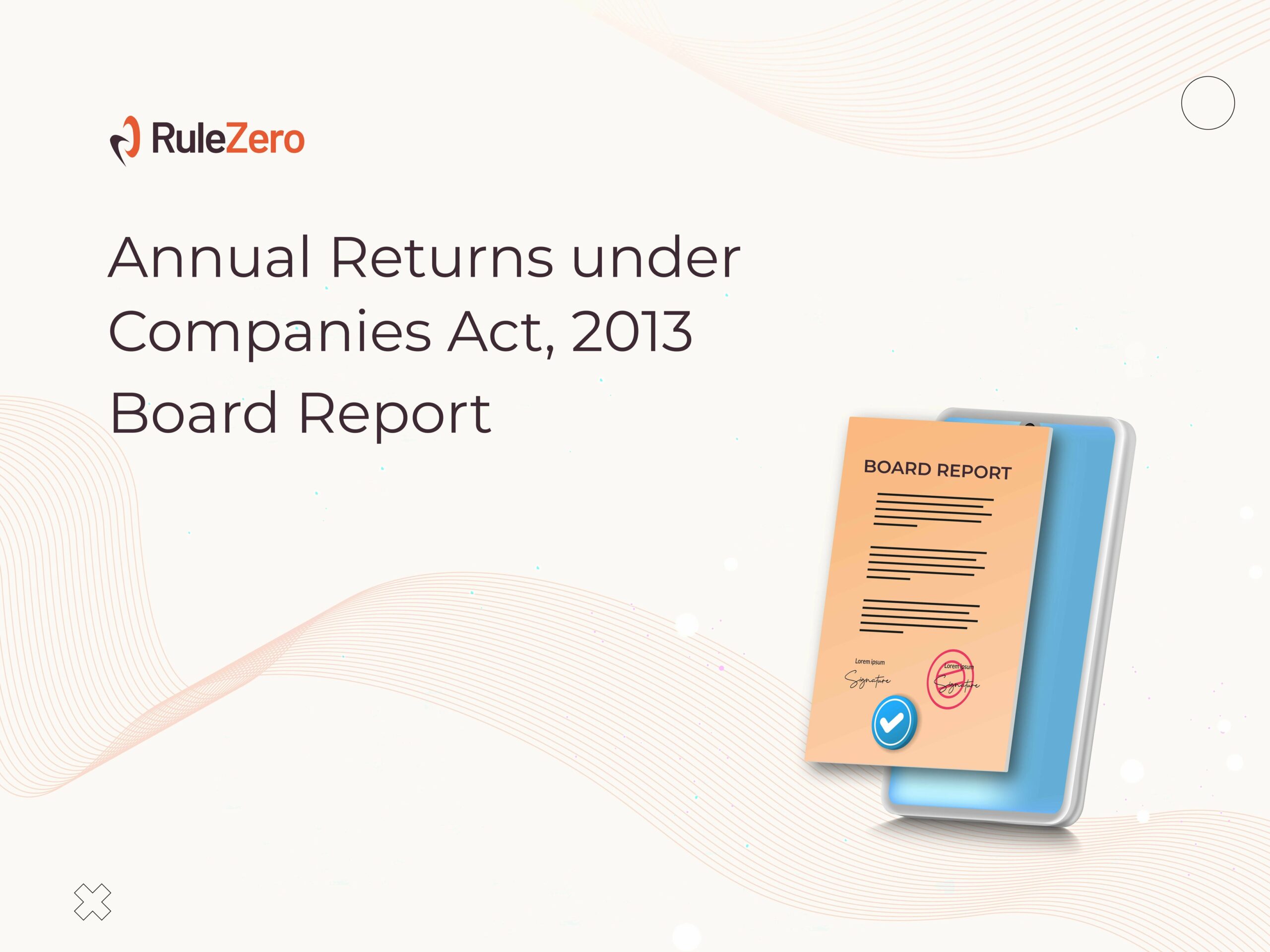Board report
The board report forms an integral part of the annual filings and is filed along with annual returns of the company. While the documents and filings that we have discussed in our previous blogs are more to do with the financial aspects of the company, the board report provides details of both the financial and operational matters.
In this article, we provide an overview of what a board report is, what it contains, and why it forms an important filing for the company.
What is a board report?
Also known as the directors report, the board report is a document prepared by the directors of a company. It contains essential information about the company’s finances, operations, and managerial structure. The board report is prepared by the director of the company. As a director, you should provide detailed information in the board report about the actions and responsibilities that you have undertaken in a given financial year.
What are the constituents of a board report?
On a high level, the report covers the following points:
Operational information
- Details of the company’s business operations
- Amendments to applicable statutory laws or rules and their impact on the company’s operations
- Internal controls and risk management policies in place
- Initiatives taken toward employee engagement
The number of board meetings held during the year, attendance of the directors.
Activities are undertaken to maintain good operative efficiency- Remuneration of the key managerial staff, changes in the risk, dividend, CSR initiatives.
Changes in the composition of the management board- Appointment/reappointment, termination/resignation of a director; changes in the composition of the audit committee; company secretary report.
Financial information
- The details of the company’s fixed and intangible assets
- Foreign exchange earnings/payments in the year
- Reserves and surplus as per the balance sheet of the company on the last day of the financial year.
- How funds have been utilized towards business operations.
- Accuracy of the books of accounts and registers maintained and updated from time to time.
- Details of any deposits accepted and outstanding debt, loans taken as on the last day of the financial year
- The accounting standards adopted to prepare the financial statements. In India, accounts are maintained according to the Generally Accepted Accounting Principles (GAAP).
- The accounting policies adopted. For example, how is depreciation calculated, and inventory valuation- do the companies follow FIFO or LIFO method when recording stock
- Statutory compliances are undertaken under the Income Tax Act, GST, etc.
Details of any irregularities or misstatements in the company’s records pointed out by the auditor of the company.
What happens if the company does not file the board report?
The board report is presented in the shareholder’s meeting. The report is submitted along with the annual returns to the Registrar of Companies. Failure to file the report can result in the company paying a fine of up to INR 3 lakh. The concerned director may also be liable to pay a penalty of INR 50 thousand.
Final thoughts
Being a director in a company comes with a lot of responsibilities. As much as you (as a director) may enjoy running the organisation, making the decisions, taking risks and getting things done, don’t overlook the importance of doing things in an orderly manner. Some procedures may seem cumbersome for a small company but making good practices will help when the organisation grows. Good practices also signal to shareholders and investors that their investment is in good hands.










